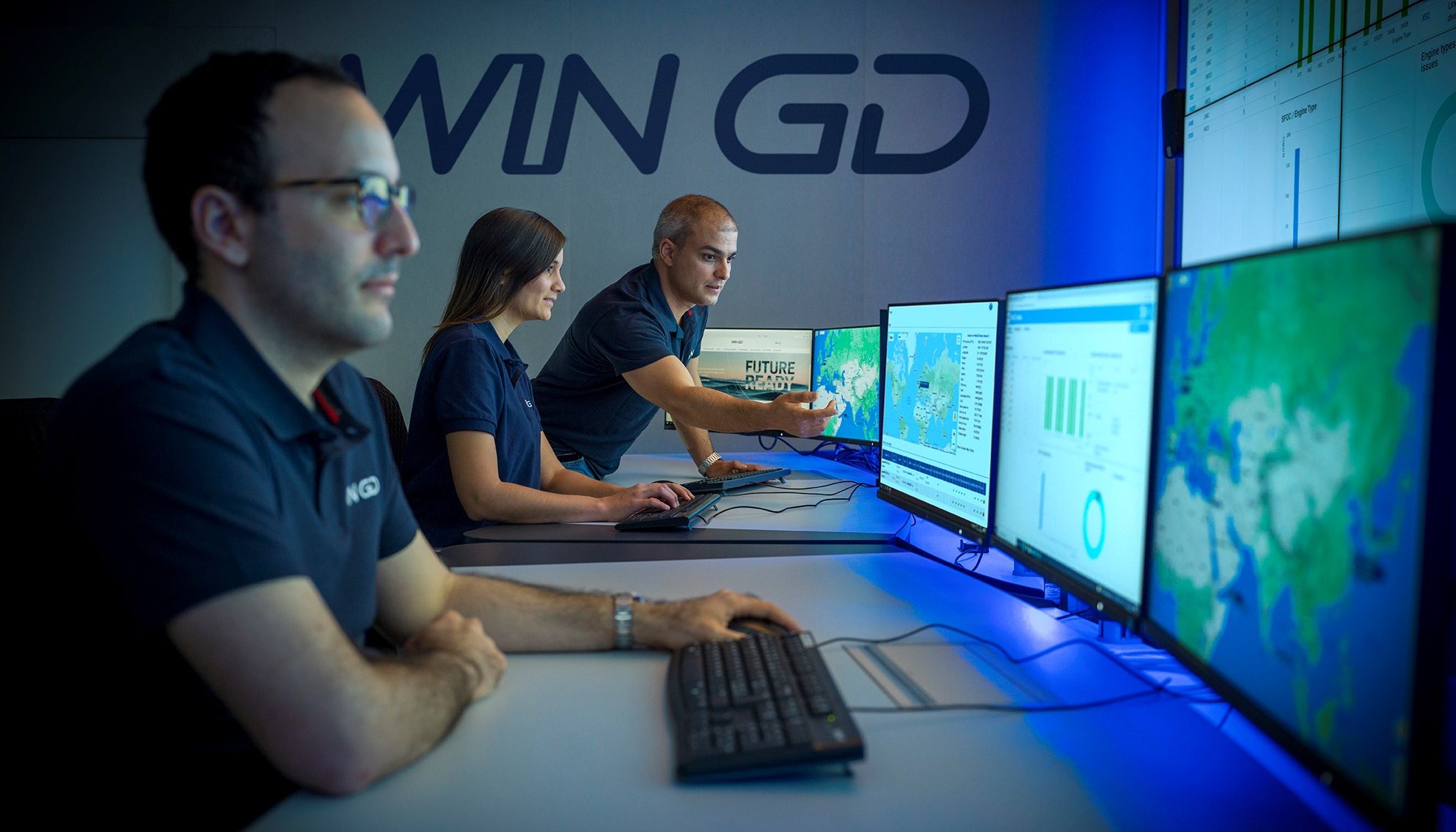Swiss marine power company WinGD has signed a proof-of-concept agreement with emissions data specialist Chord X to develop digital solutions focused on sustainability in shipping. Among several areas of development, the partnership aims to bring ship operators component-level insights into carbon intensity indicator (CII) ratings.
The collaboration targets providing visibility into how engine performance affects overall vessel operational efficiency as reported under IMO’s incoming CII regulation. By linking WinGD’s engine diagnostics platform WiDE with Chord X’s vessel emissions analytics solution ecoMax, owners and operators can drill down into their current or projected CII ratings to see whether engine operation can be optimised to improve ratings.
The connection between the two systems shall allow operators to see how future voyages will affect CII ratings, as well as projecting ratings for future years as the regulation demands greater efficiency improvements. Combined with better understanding of engine performance, this offers a valuable tool to help plan fleet utilisation and manage priorities for maintenance.
“Partnering with WinGD will allow us to provide the very best machine-GHG integration, which WinGD and Chord X will design for the next generation of marine main engines,” said Tin Wei Hong, Chord X Head of Business & Partnership “Together, we will unlock the full potential of data-driven marine main engine operation and enable our customers to take the best path for success in the new digital shipping landscape.”
“This collaboration comes at the exact time when our industry needs greater visibility of the effectiveness of GHG-reducing technologies,” said WinGD Director of Operations Rudolf Holtbecker. “By combining WinGD’s advanced engine technology innovation and Chord X’s focus on the emissions profile of vessel operations, ship owners can directly connect the emissions calculations with enhanced machinery analysis.”
By integrating data from WiDE, ecoMax can deliver even more accurate engine emissions analysis. Conversely, WinGD users can connect their engine insights from WiDE to a well-established vessel emissions analytics platform that has already been approved by DNV as a means for reporting CII performance.
The strategic cooperation will extend beyond CII to other areas where improving the accuracy of emissions data – and linking the ability to optimise or troubleshoot engine performance – can benefit ship operators. For example, if operators are required to comply with emissions trading schemes or carbon pricing, just a fractional reduction in emissions can lead to big cost savings.
As part of the partnership, WinGD customers will be able to access both WiDE and ecoMax platforms. Users will be able to move between the two platforms with a single click, enabling simple and fast comparison of vessel- and engine-level emissions performance.



























